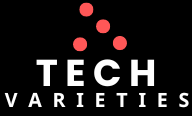South Africa Advances with New AI Policy Framework: Key Steps and Global Comparisons
As South Africa moves forward with its artificial intelligence (AI) initiatives, the feedback from ongoing stakeholder consultations is crucial in shaping a comprehensive and effective AI policy. The Department of Communications and Digital Technologies (DCDT) has recently released a national policy framework, marking a pivotal step toward establishing the country as a leader in AI.
Key Developments in South Africa’s AI Policy
Local media highlight this release as a significant “first step” in developing a national AI policy for South Africa. The DCDT is actively seeking input from the information and communication technology (ICT) sector and other relevant stakeholders to refine and enhance the policy.
Framework Goals and Strategic Focus
Once finalized, the AI policy will lay the groundwork for AI regulations and potentially an AI Act in South Africa. The framework outlines strategic pillars essential for AI policy development, focusing on fostering a vibrant AI ecosystem through coordinated efforts in research and development, talent cultivation, and infrastructure enhancement.
The publication of this policy framework follows the African Union’s approval of the “Continental Artificial Intelligence Strategy” on August 9. This strategy encourages AI adoption across both public and private sectors within AU member states, demonstrating a continent-wide commitment to advancing AI.
Implementation and International Benchmarking
The DCDT’s policy framework aligns with global best practices, thanks to extensive international benchmarking. This ensures that South Africa’s approach is in line with successful strategies from other nations.
The department plans to conduct formal consultations with stakeholders, aiming to conclude these discussions by the end of September. Feedback on the framework document can be submitted via email.
AI Strategy Adoption Across Africa
AI strategy adoption is gaining momentum across Africa. As of July, six countries—Algeria, Benin, Egypt, Mauritius, Rwanda, and Senegal—have developed standalone AI strategies. Other nations, including Ethiopia, Ghana, Kenya, Mauritania, Morocco, Nigeria, South Africa, Tanzania, Tunisia, and Uganda, are also making significant strides in defining AI policies and establishing institutions for AI development.
Nigeria leads the way with advanced initiatives to promote AI adoption. The Nigerian government has launched a program to train 1,000 Nigerians annually in cutting-edge technologies, including AI and blockchain.

